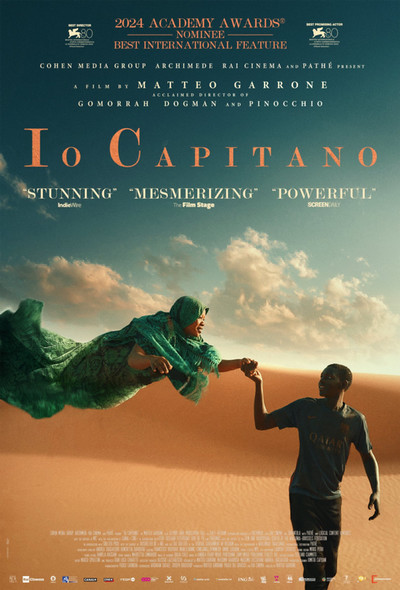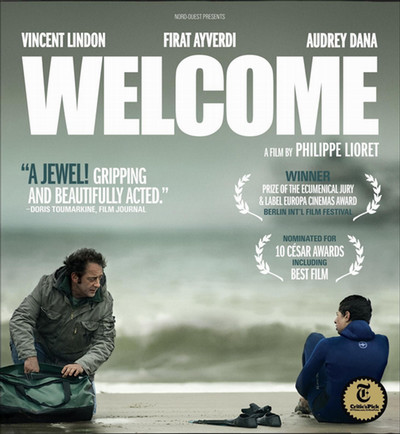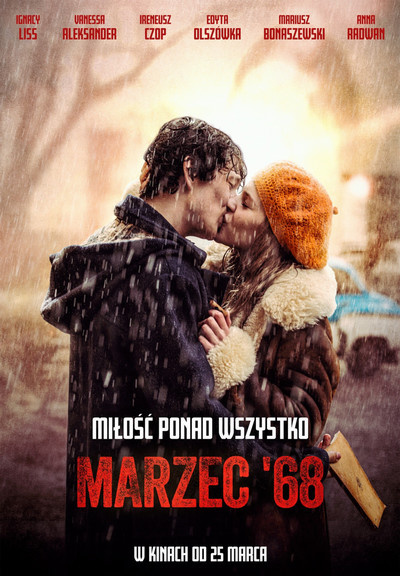SLC’s World Film Forum returns from pandemic-imposed ‘exile’
The College of Liberal Arts is pleased to announce that one of the most cherished School of Language and Culture traditions and their most popular outreach event, the World Film Forum, returns this Fall.
“Our theme this year, ‘exile,’ was inspired by the massive human displacements in today's world as a result of war, violence, political and religious persecution, and climate change,” said Hongjian Wang, Associate Professor of Chinese in SLC and the Committee Chair of the revived World Film Forum. “This will be the first World Film Forum since the Covid pandemic, so we are very excited about it.”
SLC will host screenings and discussion of three European films at the West Lafayette Public Library on three consecutive Tuesday evenings (Sept. 17, Sept. 24, and Oct. 1), from 7 p.m. to 9:30 p.m. “I see this forum as a window to see the world and a mirror to reflect upon ourselves,” Wang said. “We very much look forward to a lively, engaging discussion with our audience from the local community.”

Io Capitano (Me Captain)
Directed by Matteo Garrone, 2024
From award-winning Italian director Matteo Garrone, this harrowing account of two teenagers seeking fresh opportunities by trekking from their native Senegal to Europe exposes the often grim realities of present-day immigration, both in the “Old World” and the “New.”
Regarding a possible trip through the Saharan desert to the Mediterranean shore and then to Italy and the rest of Europe, his mother warns: “Dead bodies everywhere.” Yet dreams of fame in Parisian music studios, and hopes of big-enough wages to provide a better life for his family, propel 16-year-old Seydou and his cousin Moussa to leave their native Senegal. They depart Dakar, the city where they’ve known poverty but also the warmth of kin and neighborhood, the joy of drum-and-dance festivals, the fun of guess-the-right-word games in one-room dwellings. For viewers outside the African context, the cousins’ 3000-mile trek grants an intimate glimpse into the all-too-common travails of real-life immigrants: monetary extortion by border guards; first-hand witnessing of co-travelers’ deaths; abusive treatment, even torture, at detention camps; modern (or not-so-modern) forms of slavery; the necessity to engage in by-the-seat-of your-pants navigation on the high seas. For North American viewers who know immigration as a point of often heated public debate, Seydou’s and Moussa’s treacherous odyssey yields thought-provoking parallels from across the Atlantic.
Presenter: Brett Bogart, Lecturer of Italian in the School of Languages and Cultures.

Welcome
Directed by Philippe Lioret, 2009
Welcome tells the story of a young Kurd immigrant named Bilal who is set on crossing the English Channel by any means possible to be reunited with his girlfriend Mina in England. When swimming becomes the only option, he enrolls in lessons at the pool in Calais, France, and strikes a friendship with Simon, a former champion turned swim coach. The film not only sheds light on the living conditions of immigrants and refugees in Calais, but also questions the validity of the French law prohibiting citizens from providing food and shelter to refugees, which has since been coined as a "crime of solidarity".
Presenter: Emmanuelle Ben Hadj Ben M'Barek, Lecturer of French in the School of Languages and Cultures.

Marzec ’68 (March ’68)
Directed by Krzysztof Lang, 2022
Janek and Hania fall madly in love while fighting the injustice of their government, and the pressure of their families who are on opposite sides of the barricade during the March 1968 political crisis in Poland. Will their love survive? Are their political beliefs stronger than their love for each other? What does their future look like?
As the world is going through events that make 1968 a year to remember, Poland is having a war of its own resulting in the forced migration of thousands of Polish Jews: victims of the antisemitic campaign run by the Polish authorities.
After Janek saves Hania’s life during an abrupt encounter, Janek falls in love with the strong-willed, idealistic, beautiful Hania. The two university students spend days and nights together getting to know each other and making plans for their future, unaware of Poland’s inevitable political changes. After the Communist regime bans the poetic drama, “Forefather’s Eve,” Hania, the daughter of a jobless neurosurgeon, joins other young students, many of them also of Jewish origin, in protesting against censorship and the illegal expelling of university students, by chanting “Freedom and Democracy.” In support of the cause, and maybe because of his love for Hania, Janek joins the protest despite being the son of a colonel in the Interior Ministry. The rally, held in front of the University of Warsaw Library, is dismantled by military groups; students are beaten, arrested, and accused of Zionism. Hania is detained, tortured, and accused of being a spy. After Hania’s release, she and her family make the hard decision of joining the thousands of other Jews leaving Poland. Janek and Hania must choose between love and freedom. Will Hania lose her family and stay with Janek? Will Janek go against his father and follow Hania and her family?
Director Krzysztof Lang uses archival news footage to bring to the big screen the events of March 1968 in Warsaw, Poland, and its gripping consequences. Lang dedicates his film to friends unjustly persecuted.
Presenter: A. Ligia Scott, Lecturer of Spanish in the School of Languages and Cultures.
All films will be shown in their original language with English subtitles. Snacks and light refreshments will be provided.